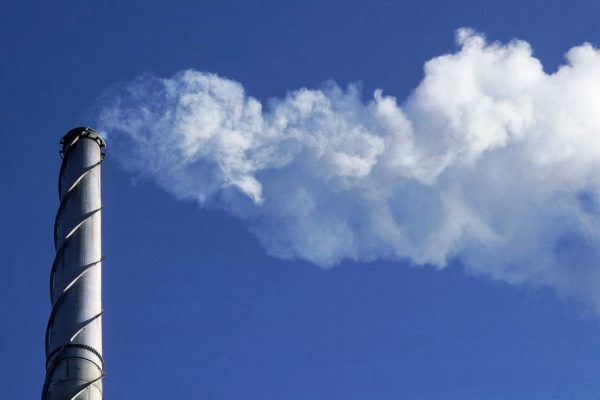The U.S. Environmental Protection Agency (EPA) last week announced that it plans to scrap its legal authority to address the threat of climate change. It’s an inexplicable move in an era of rising temperatures, escalating extreme weather, and climate-linked damage to infrastructure, communities, and human life.
 EPA Administrator Lee Zeldin is proposing to overturn the “endangerment finding,” which establishes the patently obvious scientific fact that climate change poses serious threats to human health, and thus is an air pollution problem that EPA must address through its regulatory authorities under one of our bedrock environmental protection laws: the Clean Air Act.
EPA Administrator Lee Zeldin is proposing to overturn the “endangerment finding,” which establishes the patently obvious scientific fact that climate change poses serious threats to human health, and thus is an air pollution problem that EPA must address through its regulatory authorities under one of our bedrock environmental protection laws: the Clean Air Act.
Earthjustice has a great explainer on why the endangerment finding matters:
In 2009, the Environmental Protection Agency (EPA) determined that greenhouse gases are air pollutants that endanger public health and welfare by driving climate change. As such, gases like carbon dioxide and methane are subject to regulation under the Clean Air Act.
This determination — rooted in scientific consensus and affirmed by the Supreme Court — is known as the endangerment finding. It is the foundation of several Clean Air Act protections that limit climate pollution from such sources as power plants, cars and trucks, and fossil fuel drilling operations.
With this move, the Trump Administration’s EPA is deliberately turning a blind eye to the threats climate change pose to people and environment. The Natural Resources Council of Maine (NRCM) is determined to be part of the strong opposition to this radical attack on the nation’s legal foundation for reducing the greenhouse gas emissions causing climate change.
Why Do the Endangerment Finding Matter for Maine?
Climate change is here. It is caused primarily by burning fossil fuels like oil, gas, and coal. And ignoring it won’t make it go away.

Waves crashing on shore in Ogunquit during storm
The impacts of climate change are already harming our communities in the form of extreme weather, flooding, warmer waters, and storm damage. These impacts are taking a toll, costing us billions in recovery costs. The best way to address them is to reduce our reliance on polluting fossil fuels.
NRCM has always used the best available science to make our decisions. When it comes to climate change, the science is clear. The level of scientific consensus on the fundamental causes and trends around climate change is overwhelming and unprecedented. Here at home, Maine scientists have clearly demonstrated growing impacts on our environment, communities, and people through their work on the Maine Climate Council.
The Maine Climate Council’s Scientific and Technical Subcommittee’s latest scientific assessment is deeply troubling but recommended reading. Its findings – backed by peer-reviewed scientific research – make clear that:
- Maine’s climate is getting warmer and wetter, with more high-intensity rainstorms. Temperature projections for Maine are for a 2–4°F increase by 2050 and up to 10°F by 2100
- The Gulf of Maine is warming faster than 97% of the world’s ocean surface and is experiencing near-constant ocean heat waves.
- Sea level is 7.5 inches higher than in early 20th century Maine, and the rate of sea-level rise has nearly doubled in the past 30 years. Rising sea levels have caused recent increases in devastating coastal flooding, such as the record-breaking storm events of January 2024.
- Maine is vulnerable to increasing illnesses and deaths stemming from extreme weather—especially heat, cold, and storm impacts such as flooding.
- Smoke from wildfires in Canada and the western U.S. and increased aeroallergens such as pollen are impacting air quality in Maine and resulting in recent poor air quality alerts.
- Maine homeowners saw the second-largest home insurance rate increase in the country in 2024.
- Mainers particularly vulnerable to climate change include rural, older, and lower-income residents, as well as those people and places with economies tied to climate-sensitive resources—those often overlooked when needing help.
- Weather variability is reducing crop yields, causing economic impacts to farms, and mental and physical health impacts to farmworkers in Maine.
There are many more impacts detailed in the report, but the bottom line is that when there is a clear threat with a clear cause to our health, our communities, and our environment, we have a moral obligation to stand up and act.
What’s Next and What Can I Do About It?
EPA’s proposal to scrap the federal government’s response to climate change will now go through extensive public comment and litigation. NRCM will join national and state partners in opposing it by every means possible. Sign up for our emails, and we’ll keep you posted on how you can help. Donating to NRCM to support our climate and clean energy program is always a great way to help.
We find hope in the stories of everyday Mainers who are taking action – coming together to make their communities more resilient, supporting local clean energy jobs that install heat pumps and rooftop solar, and taking action to protect our future.
As much as the Trump Administration and their allies in the fossil fuel industry may hope we’ll just give up, we’re not going anywhere. We won’t ignore climate change and its impacts on our nation and our state.
Across Maine, from the coast to the mountains, from north to south and west to east, our rural state is experiencing the impacts of climate change already. But we don’t have to accept a diminished future and a damaged environment. We will continue to stand alongside Maine people and communities to confront this threat as we always do—by rolling up our sleeves and getting to work to make this world a better place.
—Jack Shapiro, NRCM Climate & Clean Energy Program Director














Leave a Reply